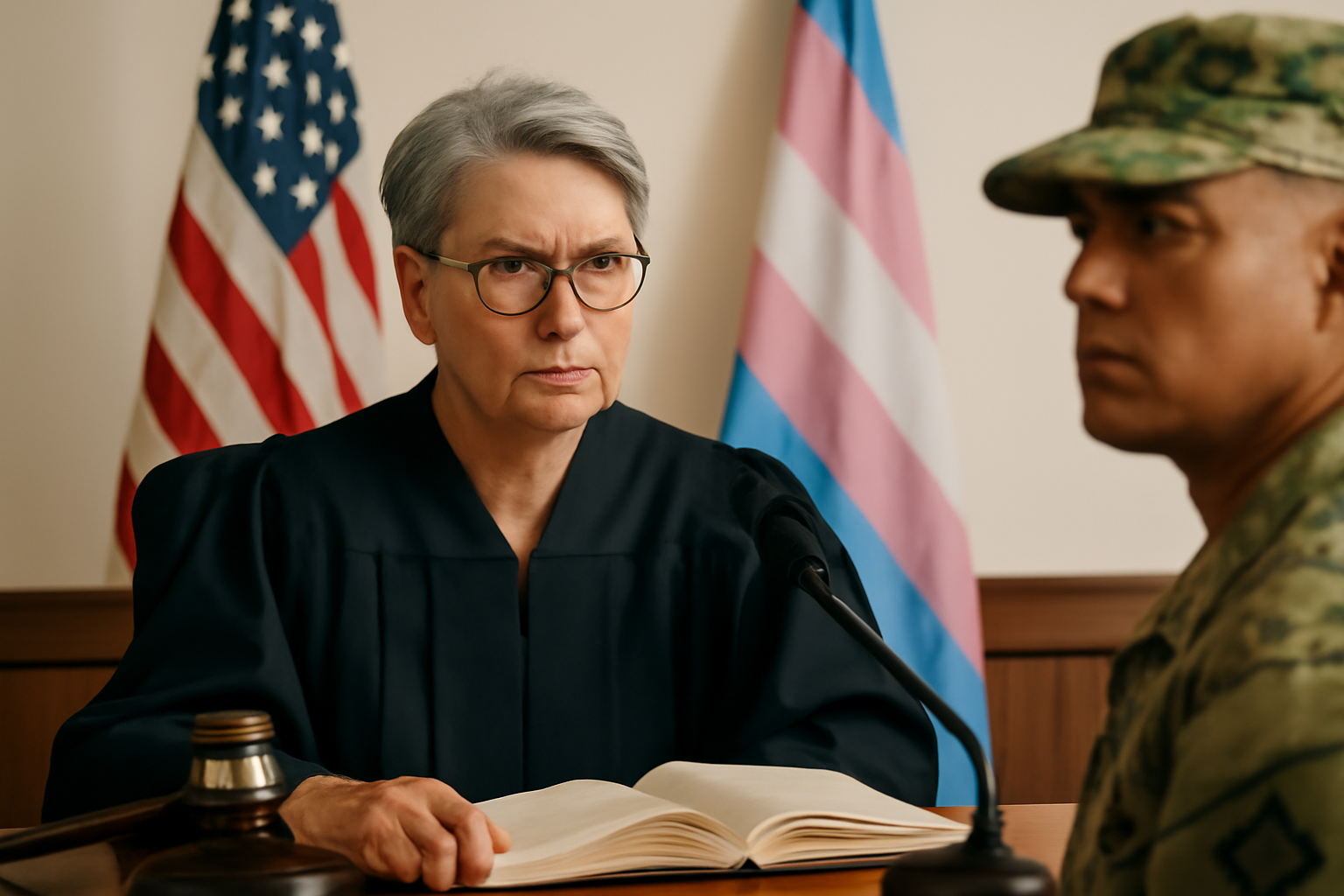
The recent legal proceedings concerning the United States military's policy on transgender service members have taken a dramatic turn. The Department of Justice has raised objections regarding the presiding judge, who is openly lesbian, suggesting a potential bias in handling the case. This development has sparked discussions across the nation about fairness, representation, and the impartiality of the judiciary.
The Background of the Case
The controversy centers around the Trump administration's decision to implement a ban on transgender individuals serving in the military. This policy has faced numerous legal challenges since its announcement, with many arguing that it discriminates against transgender individuals based on gender identity.
In this particular case, a federal judge was set to hear arguments challenging the legality of the ban. The judge, known for her advocacy and work within the LGBTQ+ community, has been a prominent figure in the legal world and has a history of championing civil rights.
Justice Department's Complaint
The Department of Justice's complaint does not focus on the merits of the case itself but rather on the judge's potential bias. Officials argue that her sexual orientation and past activism could unduly influence her ability to remain impartial during the proceedings. This assertion has been met with significant backlash from various sectors, who claim it undermines the integrity of the judiciary.
Critics of the Justice Department's position argue that a judge's personal identity should not disqualify them from cases related to civil rights, especially when their professional record demonstrates a capacity for impartial decision-making. They suggest that such complaints set a dangerous precedent, implying that judges from minority groups cannot fairly preside over issues affecting their communities.
Reactions from Various Stakeholders
The reaction to this filing has been swift and vocal. Advocacy groups and legal experts have come forward to support the judge, emphasizing the importance of diversity within the judiciary. They assert that having judges with varied backgrounds enriches the judicial process and ensures that different perspectives are represented in legal decisions.
On the other hand, supporters of the Justice Department's view argue that the integrity of the legal system must be preserved by ensuring that all judges are entirely impartial, regardless of their personal backgrounds. They claim that questioning a judge's impartiality is a legitimate part of maintaining a balanced and fair judiciary.
The Broader Implications
The implications of this complaint extend beyond the courtroom. It has sparked a national conversation about the role of personal identity in judicial proceedings and the importance of representation in the legal system.
This case highlights the ongoing tensions between different interpretations of justice and equality. While some see the inclusion of diverse judges as a step towards a more equitable society, others view it as a potential conflict of interest that needs to be carefully managed to uphold the tenets of impartiality and fairness.
The outcome of this situation could have long-lasting effects on how cases involving civil rights and minority groups are handled in the future. It raises questions about the level of representation necessary in the judiciary and how to balance personal identity with the requirement for impartiality.
Conclusion
As the legal battle over the transgender military ban continues, this recent development adds another layer of complexity to an already contentious issue. The decision on whether the judge will continue to preside over the case is eagerly awaited, as it will not only impact the immediate proceedings but also set a precedent for future cases involving judges from minority backgrounds.
Ultimately, this situation serves as a reminder of the delicate balance between maintaining a fair judicial system and ensuring that all voices are represented and heard within it. As the nation watches closely, the outcome will undoubtedly influence discussions about justice, diversity, and representation for years to come.
Related Posts
Triumphant Trans Woman Wins Legal Battle and Inspires Others to Stand Up for Their Rights
Breaking new ground: a landmark victory in transgender rights After battling in courtrooms and enduring endless challenges, Diana Portillo, a transgender woman, has secured a monumental victory in her decade-long fight against workplace discrimination. The result? Nearly $1 million awarded in a historic settlement. But this isn't just a win on paper—it represents a powerful precedent in combati [...]
Pride Month in Latin America: Protests and Demands for Equality
**Celebrating Pride and advocating LGBTQ+ rights in Latin America** Pride Month in Latin America was a lively mix where celebration met activism. Communities united, not just throwing a party but making a stand—demanding equality and pushing governments toward better protection and rights recognition. Throughout Latin America, pride events erupted in marches and cultural displays, each with a c [...]
Transgender Erasure Actions Implemented by National Park Service
```html Trump administration's impact on national park service and transgender recognition The Trump administration made notable moves in undermining transgender representation, which included directing agencies like National Park Service not include "T" and "Q" when they refered “LGBTQ” in any official communication. This move seems part a broader plan by this administration aimed at reducin [...]